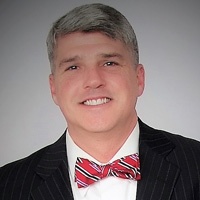Pineland White Collar Crime Lawyer, South Carolina
Sponsored Law Firm
-
 x
x

Click For More Info:
-
The Law Offices of Richard L. Cooper, P.A.
848 Brickell Avenue Suite 800 Miami, FL 33131» view mapDWI/DUI, Drug Trafficking, Felony Nationally Ranked Top 40 Under 40
With Richard L. Cooper you can expect a trusted confidant who will work diligently to fully understand your case and determine a road map to help you regain control of your life.
800-756-2781
Not enough matches for Pineland White Collar Crime lawyer.
Below are all Pineland Criminal lawyers.
Bennett J. Schiller
✓ VERIFIEDAccident & Injury, Criminal, Divorce & Family Law, Health Care, Workers' Compensation
Becoming a trial lawyer was inevitable for Bennett J. Schiller, III. He was born in Savannah, Georgia in 1968 the son of Bennett and Marie Schiller. N... (more)
FREE CONSULTATION
CONTACTTrip A. Lawton
Accident & Injury, Criminal, Divorce & Family Law, Real Estate, Workers' Compensation
Status: In Good Standing Licensed: 20 Years
FREE CONSULTATION
CONTACTR. Thayer Rivers
Real Estate, Workers' Compensation, Criminal, Personal Injury
Status: In Good Standing
Olesya Matyushevsky
Immigration, Employment, Divorce & Family Law, DUI-DWI
Status: In Good Standing Licensed: 16 Years
Larry W. Weidner
Military, Divorce & Family Law, Criminal, Personal Injury, Child Custody
Status: In Good Standing Licensed: 36 Years
Sally G. Calhoun
Real Estate, Criminal, Family Law, Trusts
Status: In Good Standing Licensed: 50 Years
John R. Hetrick
Social Security -- Disability, Workers' Compensation, Criminal, Personal Injury
Status: In Good Standing Licensed: 47 Years

 Richard L. Cooper Miami, FL
Richard L. Cooper Miami, FL AboutMiami Attorney at Law
AboutMiami Attorney at Law ServicesCriminal Defense
ServicesCriminal Defense

